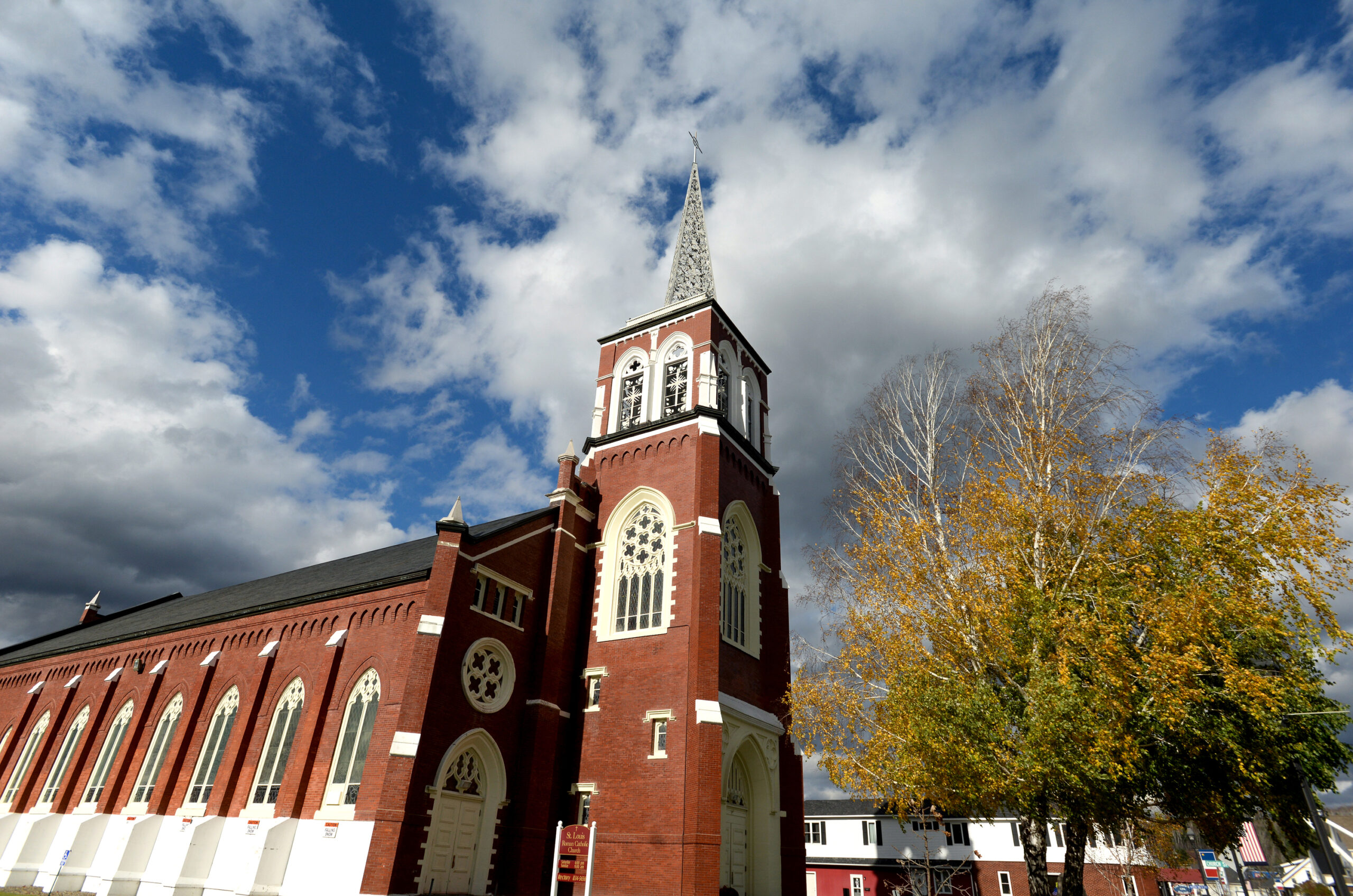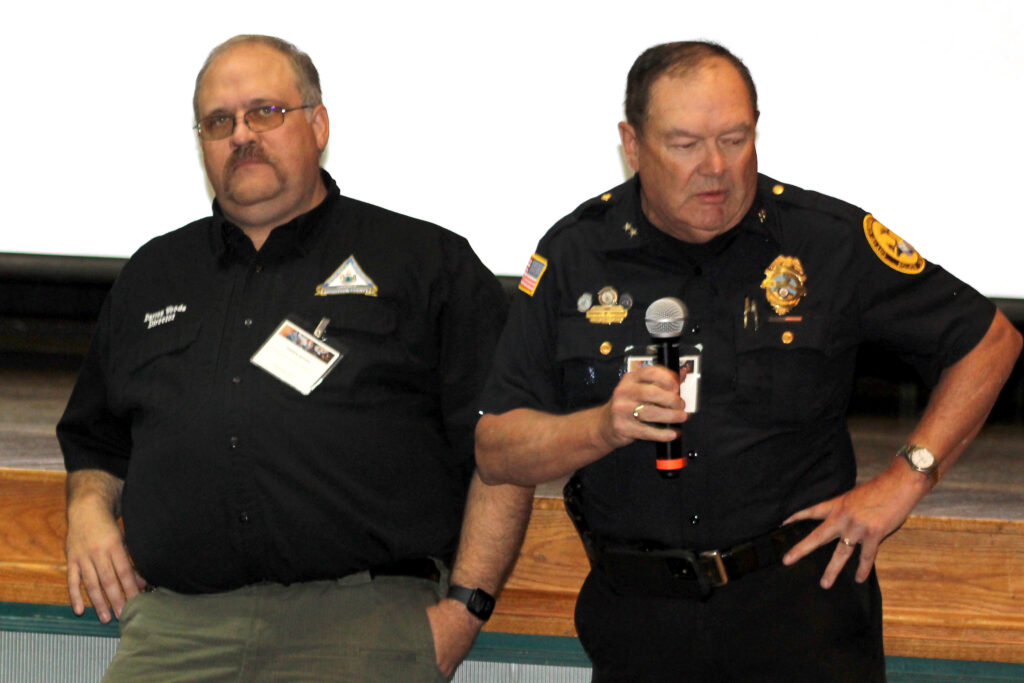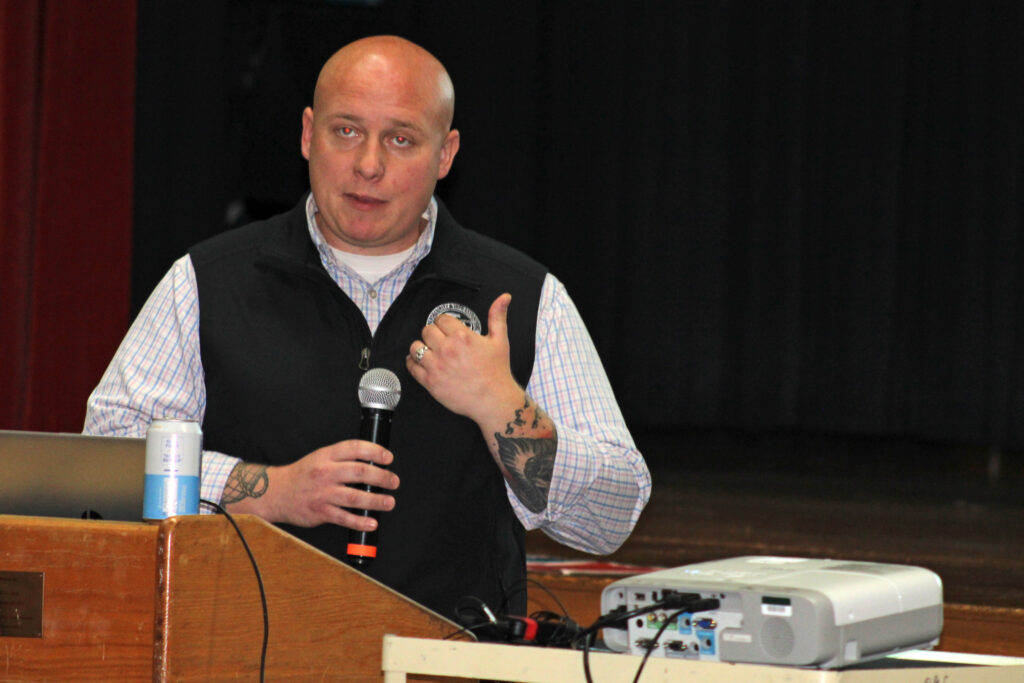
Maine’s rural houses of worship, like others nationwide, are increasingly vulnerable and need to be prepared to deal with threats of violence, experts said at a Tuesday forum in Caribou.
The Aroostook County Emergency Management Agency hosted the event, which included law enforcement, government and church leaders, at Caribou High School.
The session was meant to educate and was not prompted by any specific threats, agency director Darren Woods said.
But the forum was timely in Aroostook County. Last week someone painted hate-filled graffiti at the Presque Isle Congregational Church/United Church of Christ, which advertises itself as welcoming to all people. Although violence at local faith communities is rare, having a plan of action to deal with an attack or threat is necessary in today’s world, Caribou Police Chief Michael Gahagan said.

“We’re still so far from what goes on in this big world that we’re fortunate,” Gahagan said. “But being prepared [is] like insurance. You hope you never have to use it, but if you have to, you know what to do.”
The largest act of violence in a Maine church community occurred 20 years ago in New Sweden, when a church member poisoned coffee with arsenic over an alleged dispute over a communion table. Several were sickened and one man died. And in 1997, Presque Isle’s original Grant Memorial United Methodist Church was burned down by an arsonist.
But fortunately, there aren’t many threats against local faith communities, Gahagan said.
Unfortunately, no house of worship is immune from violence, said Sheila Sawyer, assistant U.S. attorney for the District of Maine. Mainers want to believe it won’t happen here, but the threat is out there, she said.
Sawyer referred to a series of cross burnings in the South and the 2018 shooting at the Tree of Life Synagogue in Pittsburgh, Pennsylvania. Those may represent some of the most extreme cases of hate crimes, but no congregation is immune, she said.

Being proactive is the best defense, said John Ross, senior planner with the Maine Emergency Management Agency. Faith communities should devise plans to identify potential threats, mitigate them and help the church recover, and should share those plans with local law enforcement.
It isn’t always terrorist threats that can warrant action, he said. Winter storms, fires, medical emergencies and cybercrime are all incidents to prepare for.
It’s crucial to keep everyone informed and ready to act, whatever the emergency, Ross said. New congregants should be informed of action plans, and the community should conduct drills to keep improving its strategy.
“Don’t just make the plan and set it on a shelf, because it’s not going to do you any good,” he said. “We can’t stop everything from happening, but we have tools to help build that resilience if something does happen.”
The Maine Emergency Management Agency has a nonprofit grant program that provides funding for security enhancements, Ross said. Up to $150,000 is available per location. He urged churches to contact the agency for details.
Help is also available through the U.S. Department of Homeland Security’s Cybersecurity and Infrastructure Security Agency, said T.J. Swenson, the agency’s Maine regional protective security adviser.
He described numerous tools available at no cost to faith communities, such as site assessments, security advising and preparedness training.

The group’s initiative “The Power of Hello” is used by schools, churches, election sites and more. People are urged to observe their environment, notice any people they may not recognize and speak to them if the situation seems safe. Just looking a person in the eye may deter them from committing a crime because now someone knows what they look like, Swenson said.
The agency conducts Security Assessment at First Entry training, which informs organizations and businesses about using security cameras, lights, motion sensors and other deterrents to help them monitor people coming inside, he said.
Strategies like hiding out of the attacker’s view and being aware of corridors and rooms that can help people get away are other ways to help keep people safe in a worst-case scenario, Swenson said.
The agency has a self-assessment tool for houses of worship that he urged those attending to explore.
It’s important for places of worship to join together to help protect each other, said Harpreet Mokha, national program manager for the U.S. Department of Justice’s Community Relations Service, who joined a panel discussion via Zoom.
Connection is key to safeguarding a place of worship, Mokha said. A church that has weathered a hate crime or violence should let other churches know, so all can be prepared. All church members should know the safety measures in place, he said.
Several agencies collaborated to present the forum, including the U.S. Department of Justice, Maine Emergency Management Agency, Cybersecurity and Infrastructure Security Agency, FBI and the U.S. attorney’s office for Maine. Similar forums were held in Westbrook and Augusta over the past year.
Gahagan urged religious leaders to remember police departments are short-staffed, or in some communities nonexistent, so it may take time for law enforcement to respond to a threat — which is why congregations should know how to deal with emergencies.
“We’re living in a world we inherited,” Gahagan said. “Unfortunately for Aroostook County, we’re not used to this, but we will learn.”







